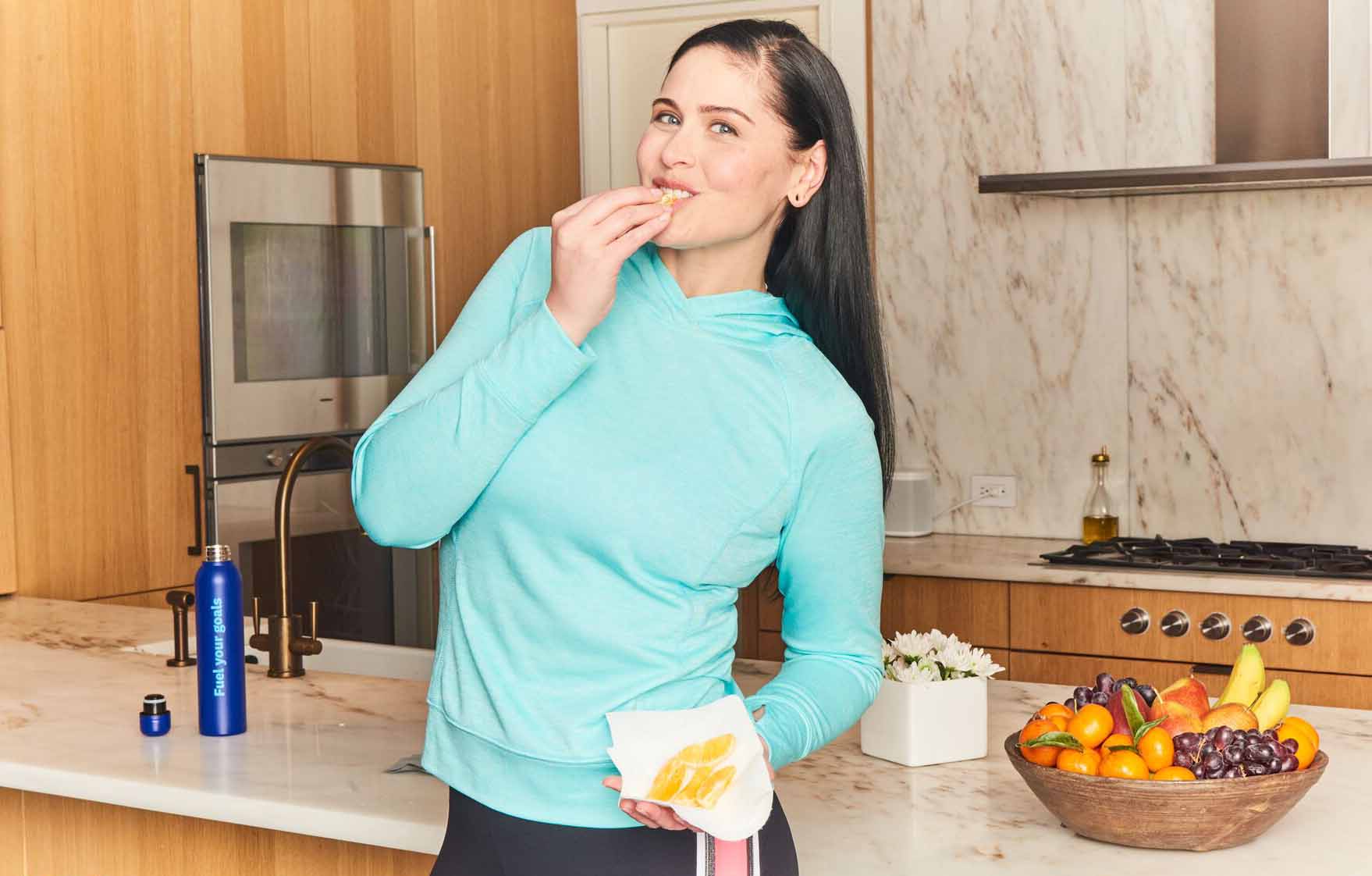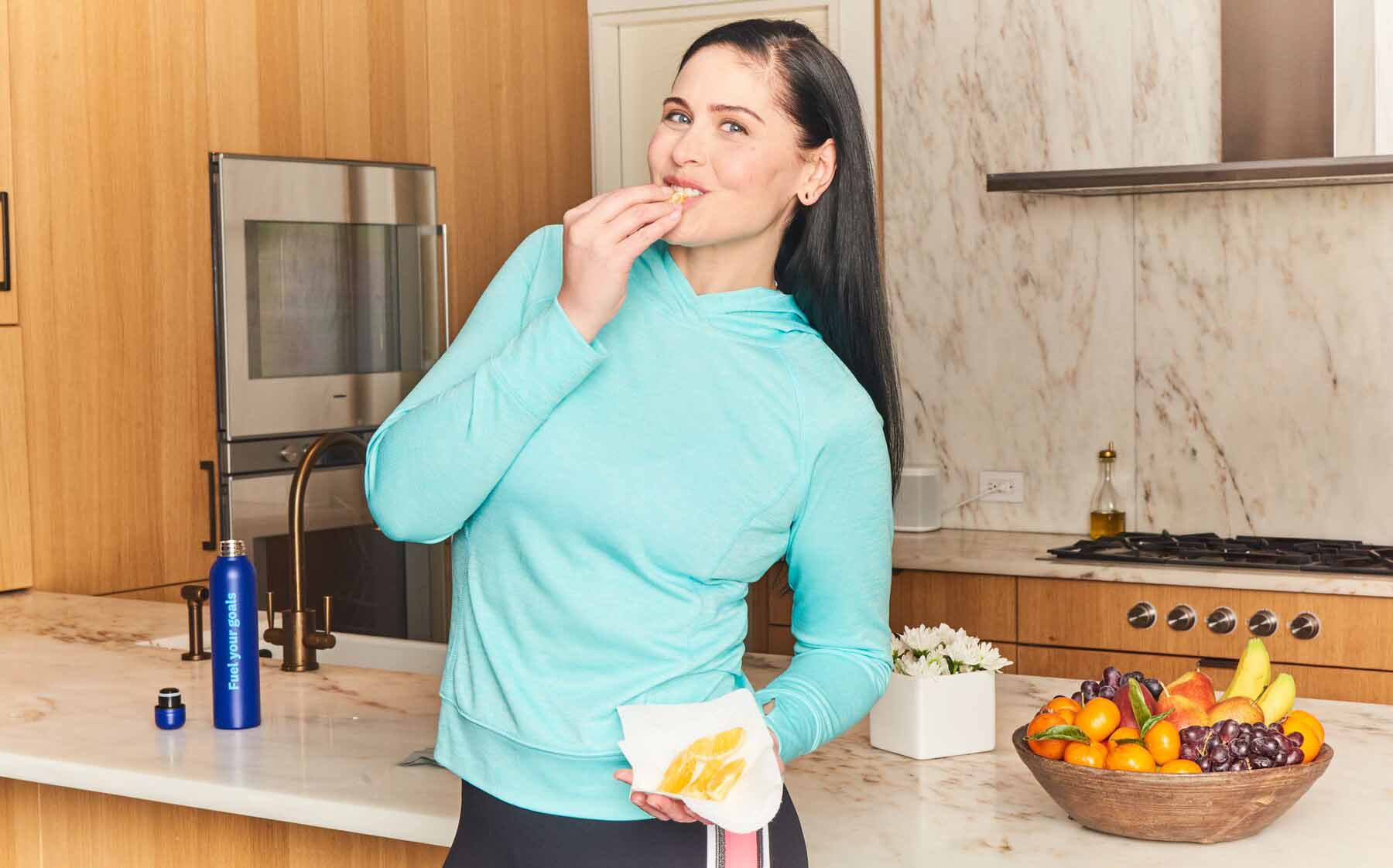

It’s mid-afternoon and you’re suddenly feeling peckish, not quite hungry but not disinterested in food, either. This could be due to lower glucose levels (which can leave you feeling hungry or with a headache), boredom or the sudden presence of sugary foods. True hunger can potentially lead you to veer of your eating plan as your brain tends to make poor decisions when it’s focus is on food. Make a plan for yourself to stay fueled and satiated throughout the day to avoid this scenario using the tips below as a guideline.
1. Snack on healthy foods that are high in fibre and high in protein. Studies have shown that this combination of macronutrients is the most effective when it comes to satiety. Classic high fibre and protein examples include carrot sticks and hummus, berries and Greek yogurt or skyr, sliced bananas with nut butter, and cottage cheese topped with fruits or veggies.
2. Stay hydrated, especially before meal times. Multiple small-scale research studies have shown that simply drinking 2 cups of water before eating staves off excessive overconsumption of food.
3. Eat slowly and with intention. While it’s tempting to eat in front of a screen, with a book or in the presence of another distraction you’re more likely to overeat when you aren’t paying attention to the food that’s in front of you. Eating at a slower pace will help you recognize the early signs of satiety, which can sometimes take up to 20 minutes for your brain to recognize.
4. Keep healthy snacks on hand, wherever you are. Whether it’s your desk drawer at work, glove compartment or gym bag, always make sure you have a snack or two stowed away for those unexpected moments when hunger strikes.
5. Make breakfast part of your morning routine, even if it’s not when you first wake up. Let’s face it, for some people the thought of eating a large meal right after the alarm goes off is less than appetizing. Instead of focusing on a single meal, eat a combination of high protein and high fibre snacks which also contain healthy fats throughout the morning.
6. Stock up on low and ZeroPoint foods you can eat in bulk without blowing through an entire day’s worth of SmartPoints. Veggies, fruit, unsalted or lightly salted plain popcorn, plain rice cakes, and roasted chickpeas are great examples of high volume, high fibre foods that won’t have any significant impact on your DailyPoints allowance.
7. Learn to differentiate between hunger pangs and boredom. True hunger sensations include rumbling in your stomach, headaches, nausea, irritable mood (yes, being “hangry” is a real thing), and difficulty concentrating or staying on task. If these physiological reminders of hunger are absent, chances are you might just be bored and thinking about food.
8. Stick to an eating routine whenever possible. Eating at the same time every day will help you adhere to a meal schedule while ensuring you feel satiated and energized. Try to maintain this schedule on the weekend to avoid overeating unhealthy snacks (which can still be enjoyed in moderation.)
9. Eat spicy foods regularly. Adding plenty of heat to your food (or, as your taste buds will allow), will not only open up a world of spicy flavour, it may have an effect on the amount of food you actually eat. One study on the consumption of spicy foods and appetite found that regularly enjoying spicy foods may have a modest effect on weight management due to increased feelings of satiety.
10. Get moving! While exercise isn’t recommended if you’re truly hungry, a workout can actually reduce the desire to snack out of boredom. Whether it’s a walk around the block or a more intense form of exercise, you’ll feel less distracted by superficial hunger cues and more in charge of your body by the end of the work out.
